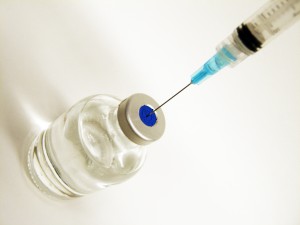
Photo courtesy of http://www.freeimages.com/profile/zeathiel
Most are aware that steroids are not good for us. Steroids are bad for bones. Bad for diabetes. Bad for tendons. But just HOW bad?
The standard recommendation for steroid injections into a tendon, such as the shoulder, elbow or Achilles tendon is no more than 3. Anything past that and you increase the risk of a tendon rupture. Basically, it is well accepted that steroids weaken tendons. Which, considering that the idea of any type of therapy is to improve the situation, this seems odd to me. Giving a therapy to provide temporary relief that will only increase the risk of future damage just doesn’t make sense to me.
I can honestly say that there have been very, very few situations in my years of practice that I have felt a steroid injection was a necessity. And don’t think you’re safe if you have a local injection directly into an area such as the shoulder. Research has shown that the injection site doesn’t matter; an injection into the buttocks is just as effective as a direct shot into the supraspinatous tendon. This means that the steroid is spreading throughout your body, effecting every single tissue in your body.
The same holds true for oral steroids taken for any reason; respiratory, pain, inflammation.
But it’s just once, right? Can’t really hurt anything, can it, so long as I keep the injections to the recommended 3 doses…?
Nope. The results of this particular study should be a massive eye-opener to everyone. In this study, researchers looked at the cellular effect of the steroid dexamethasone on hamstring tendons. They found that steroids trigger a process called cell senescence. Senescence means to “grow old” and basically indicates that an organism is coming to the end of its lifespan. Cellular senescence has a similar meaning, indicating that a cell has ceased to function fully, has stopped dividing and is basically nearing the end of its life.
Interestingly, dosage would not likely make a difference. Steroids work by acting on a receptor at the surface of a cell and there are only a certain amount of receptors available. For this reason, a low steroid dose can be powerful enough to fill up all the receptors. A high dose is not necessary.
Some would argue that this was a “test-tube” (in vitro) study, it is not likely to happen when oral steroids are used to treat something like shoulder pain. The researchers took this into account and looked at actual tissue biopsied from shoulder surgery and found the same cell signals that trigger this cell senescence. In other words, it’s real.
Worse, it’s irreversible. As in permanent.
I have stated time and time again that I am certain that the way we are treating musculoskeletal injuries and pain in medicine today is completely setting us up for problems in the future. Anti-inflammatories and steroids have consistently shown in the research that they damage the very tissues we are trying to protect.
Personally, despite many injuries over the past 20 years (ripped off extensor tendon of left 4th digit, left radial head dislocation, shoulder pain, neck pains, low back pain, episodes of knee pain) I have never even considered anything other than natural approaches. Most often, this involves advanced soft tissue techniques like Graston combined with chiropractic adjusting. And it has served me well over all this time. And maybe this approach is why I don’t deal with any chronic problems despite many severe acute injuries.
While this may seem entirely self-serving, do not let any ache or pain go and definitely do not try to “suppress” it with any type of anti-inflammatory, steroidal or not. Avoid the couch after most injuries–maintaining movement to the best of your ability is almost always your best option and ensures that scar tissue is less likely to form.
